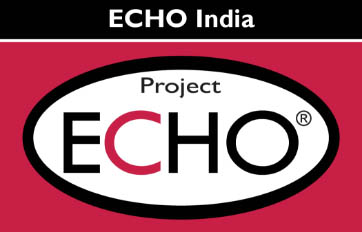Washim, an aspirational district in Maharashtra, has long struggled with poor health indicators and a rising burden of non-communicable diseases such as cardiometabolic syndrome (CMS). To address this, ECHO India launched a dedicated capacity-building initiative to equip Medical Officers with the skills and knowledge to improve early diagnosis, strengthen primary care, and make more effective referrals.
Sharing the on-ground challenges, experts from the State Institute of Health and Family Welfare (SIHFW), including Dr. Ajay Dawle and his team, highlighted a severe shortage of healthcare professionals in Washim. These professionals often lack the training needed to manage CMS effectively, leading to delayed patient care and referrals to district hospitals.
A Learning Model Built for Frontline Realities
ECHO India’s initiative aims to bridge these skill gaps, empowering Medical Officers to serve as the first point of contact for patients, and ensuring timely, effective healthcare delivery within the district. Through a series of eight virtual training sessions, the program adopts a two-way learning approach. Medical Officers from different medical facilities connect with experts in real-time, facilitating case-based discussions and knowledge-sharing among peers.
With the successful conclusion of six sessions, positive change has been visible. Dr. Rajshree Deshmukh, Medical Officer, District Training Team, highlighted “These virtual trainings are easy to organize and allow rapid dissemination of new knowledge without the delays and logistics challenges involved in physical sessions. In just four months, 8 CMS modules will be covered, offering immediately applicable insights into the field. It covers a lot of relevant topics like obesity."

Dr. Dnyaneshwar Bonde, a physician at Washim District Hospital, appreciated how the sessions respected the schedules of busy doctors. “We can update ourselves without stepping away from our duties. This format allows for quick dissemination of updated guidelines which reach us exactly when we need them.”
“The flexibility of this model enabled Medical Officers to access training at their own pace, ensuring they could balance their clinical duties while continuously updating their knowledge”, added the hub team.
Shift in Perception and Improved Referrals
The project is not only enhancing the technical skills of healthcare providers but is also reshaping their confidence in their own abilities, empowering them to realize their potential and make a greater impact.
"Medical Officers who had previously relied largely on referrals now felt confident in offering primary care, offering better diagnosis and stabilizing patients before referring them to district hospitals”, stated the district health team at Washim.
Dr. Swapnil Hake, Physician, District Hospital shared that earlier, Medical Officers would mostly prescribe oral medications, but now they are also considering insulin therapy to stabilize diabetic patients.
This shift has also improved the quality of referrals. “Referrals now include more comprehensive patient histories and diagnoses, allowing us to provide more targeted care at higher-level centers,” added Dr. Lonkar, Medical Officer, Hospital Training Centre.
Dr. Dawle also observed that the training led to improvements in early diagnosis, better identification of high-risk cases, and enhanced counseling.
An Integrated Healthcare System
The project has fostered a collaborative learning environment, allowing healthcare providers to build a community of practice. Dr. Bonde remarked, "These sessions motivate us to keep studying and applying new insights in our daily work, which is critical in a fast-evolving field like healthcare.” In addition to improving clinical skills, the training also improved communication between primary care providers and specialists.
Dr. Swapnil Hake notes, “Earlier, the primary care medical officers were somewhat hesitant. ECHO sessions have created a safe environment for them and now MOs feel more confident discussing cases with us, leading to better patient care.”
This change in attitude resulted in a more integrated healthcare system where both primary and specialist care providers worked collaboratively for the benefit of patients.
A Standout Story: Dr. Digambar Dhole, UPHC Washim
(Serving a population of 1.25 lakh in a densely populated urban slum)

A standout example of the program’s impact comes from the Urban Primary Health Centre (UPHC) in Washim, located in a densely populated slum area. Dr. Digambar Dhole, the sole Medical Officer at UPHC Washim, manages 125 outpatient visits daily, oversees five additional health centers, and handles administrative responsibilities. Despite this demanding workload, he remains committed to enhancing his skills and delivering better care to his patients.
“ECHO India gave me a platform to attend training without worrying about logistics or leaving my post. I’ve been able to implement what I learned directly in my clinical practice. Thanks to the sessions, I successfully diagnosed three cases of pulmonary embolism on time,” he said. The training refreshed his clinical knowledge, helping him recognize early symptoms, initiate timely treatment, and counsel patients on preventive lifestyle changes.
Dr. Dhole added that the focused training on cardiometabolic syndrome (CMS) deepened his understanding of Washim’s local risk factors, especially the high prevalence of alcohol and tobacco use, both closely linked to CMS.
Scaling Impact, District by District
As more Medical Officers join the program, the SIHFW team sees an opportunity to expand the model. Dr. Dawle strongly recommends implementing it in other districts. Its low-resource, digital-first design makes it ideal for underserved regions where isolation and capacity gaps persist.

Washim’s experience shows how structured, context-driven capacity-building can strengthen primary care. Medical Officers have become more capable, more confident, and better connected to specialist networks.
By making knowledge accessible and learning continuous, ECHO India helps enable healthcare providers to respond more effectively to community needs. Dr. Dhole’s story captures the essence of this change: quiet, determined, and deeply impactful.
